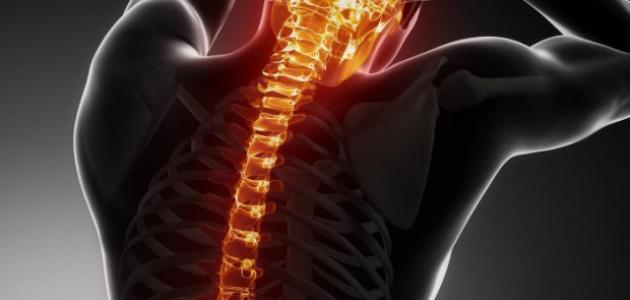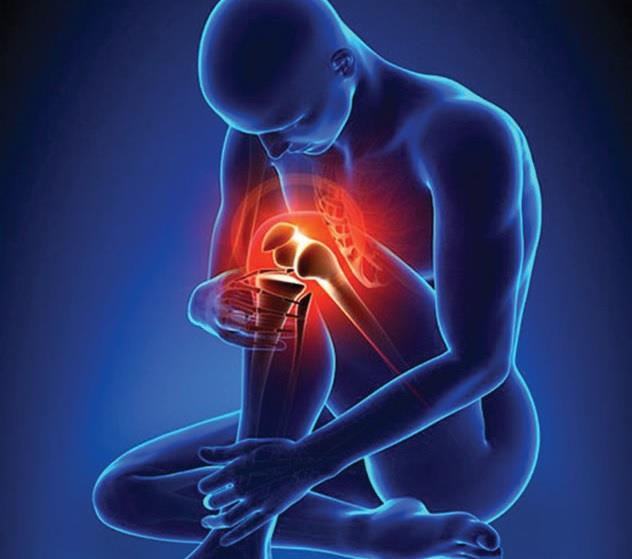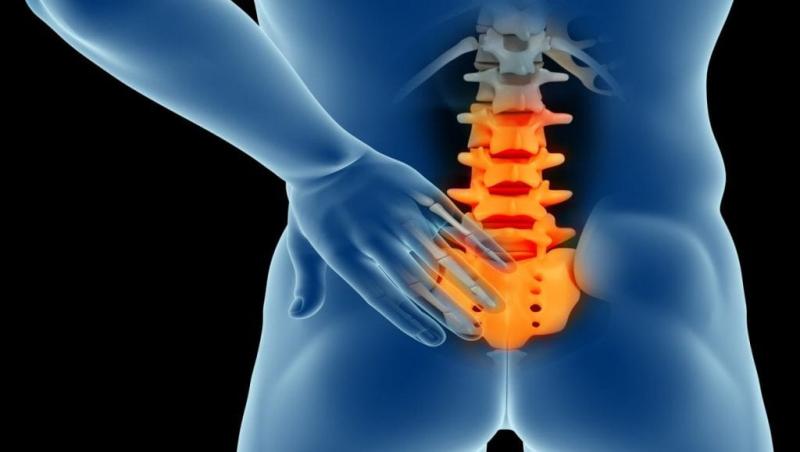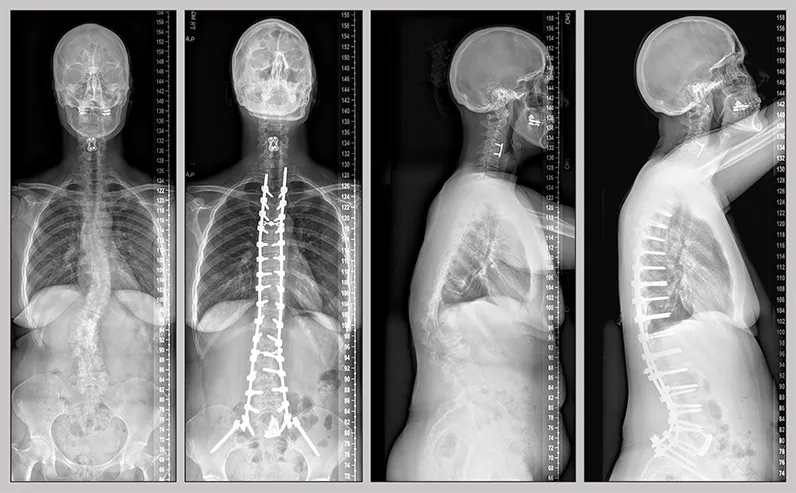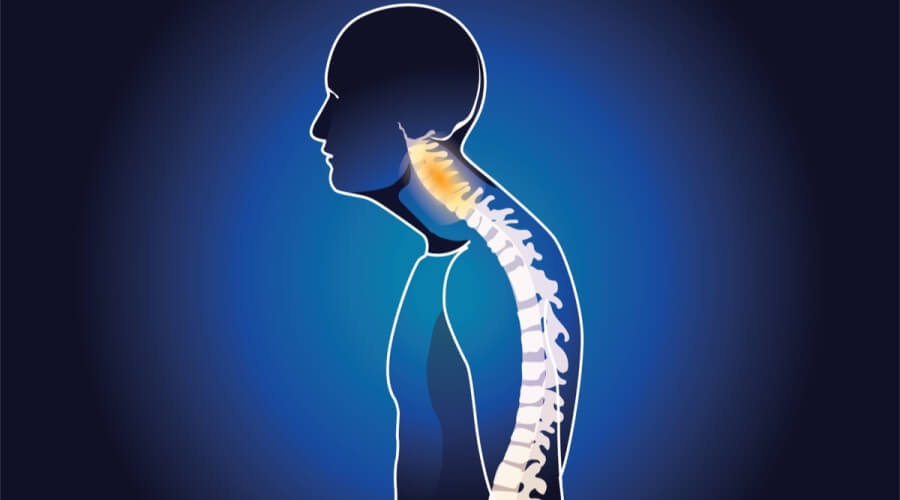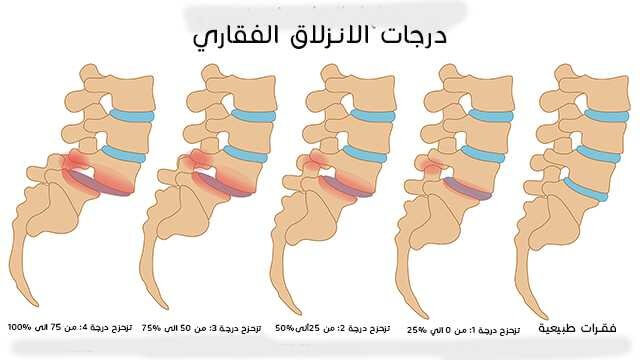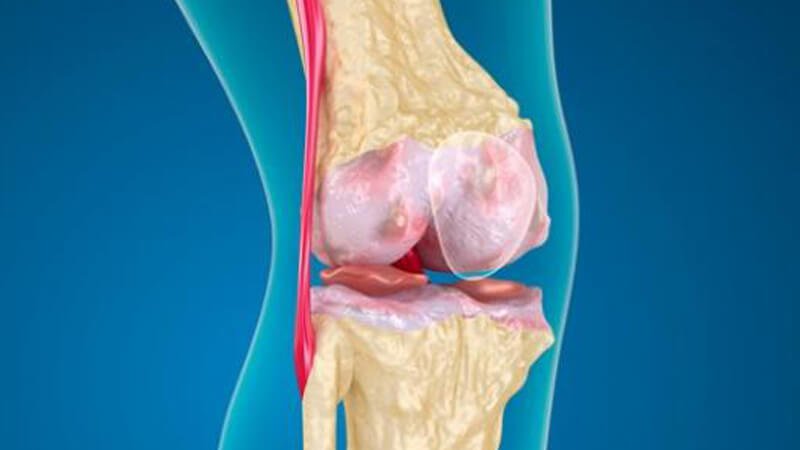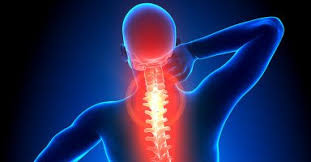Here are the symptoms of neck infections and their treatment
Symptoms of Neck Inflammation
When the nerves in the neck become inflamed, damaged, or compressed, various neurological problems and symptoms can occur. Here is a list of the main symptoms that can accompany neck nerve inflammation:
- Severe Pain: Severe pain in the back, shoulders, arms, and legs is one of the prominent symptoms associated with neck nerve inflammation. Pain may worsen with certain movements, such as coughing.
- Numbness: Inflammation of the neck nerves may be accompanied by a feeling of numbness in the affected limbs, such as the arms, shoulders, and even the back.
- Tingling Sensation: Patients may experience tingling sensations in the inflamed areas, increasing discomfort and pain.
- Muscle Weakness: Some patients with neck nerve inflammation may notice weakness in the muscles associated with the inflamed nerves. This weakness may become noticeable during daily activities.
- Difficulty in Control: Some individuals with neck nerve inflammation may have difficulty controlling the movement of the affected limbs, affecting their ability to perform daily tasks effectively.
In addition to these symptoms, neck inflammation can also be accompanied by other issues such as dizziness, balance problems, difficulty in motion, and reduced endurance.
There are several possible causes of nerve inflammation in the neck, including nerve root compression, spinal abnormalities, and chronic medical conditions. Therefore, diagnosing this type of neck inflammation requires a visit to a specialist doctor who will perform the necessary tests and determine the potential cause of the symptoms.
Treatment for neck nerve inflammation can be approached in various ways, as patients may require non-surgical or surgical treatments based on their health condition and doctor’s recommendations. Non-surgical treatment options may include spinal realignment, neck massage, and neurological rehabilitation exercises. For more complex cases, surgical intervention may be necessary to relieve pressure on the nerve roots. The appropriate treatment is determined by the specialist doctor based on the patient’s condition and individual health needs.
If you are experiencing symptoms suggestive of neck inflammation, it is essential to consult your doctor for a diagnosis and appropriate treatment. Remember that early medical attention can help reduce the severity of symptoms and improve overall quality of life.
What Are the Symptoms of Neck Muscle Inflammation?
Many people suffer from neck pain and accompanying symptoms of neck muscle inflammation. This condition can negatively impact the quality of life and the ability to perform daily activities with ease. Therefore, knowing the symptoms associated with this issue can help manage it effectively. Here are some common symptoms of neck muscle inflammation:
- Severe Pain in the Back, Shoulders, Arms, and Legs: Feeling severe pain in these areas is one of the common symptoms of neck muscle inflammation. The pain can be discomforting and affect overall body movement.
- Increased Pain with Different Movements Like Coughing: Patients may notice an increase in pain when performing simple movements such as coughing or sneezing. This could result from excessive pressure on the inflamed neck muscles.
- Feeling Weakness in the Arms and Legs: Some patients may experience general weakness in their arms and legs. This weakness can make daily activities like lifting objects or climbing stairs difficult.
- Numbness in the Hands and Fingers: Individuals with neck muscle inflammation may feel numbness in their hands and fingers. They may experience tingling or numbness in these areas due to abnormal pressure on the neck nerves.
There are several potential causes of neck muscle inflammation, including:
- Poor Posture: Prolonged sitting in front of a computer or working at a desk in an improper position is a common cause of neck muscle inflammation. People should be mindful of maintaining proper posture and avoiding straining neck muscles.
- Osteoarthritis: Osteoarthritis is a common cause of neck muscle inflammation. This condition can lead to the stiffening and softening of neck bones, causing pain and discomfort in this area.
- Damage from Leakage of Inner Material in Spinal Discs: Damage to the discs between vertebrae can occur, causing the leakage of inner material and pressure on surrounding nerves. This can lead to inflammation of neck muscles.
If you experience any of these symptoms, it is advisable to seek medical care. A doctor can evaluate your condition, diagnose neck muscle inflammation, and recommend appropriate treatment. It’s also important to avoid activities that may exacerbate your symptoms and follow self-care tips to reduce pain and improve the overall condition of your neck muscles.
What Causes Cervical Spine Inflammation?
Cervical spine inflammation is a common problem affecting many individuals. This condition can result from various causes, including:
- Cervical Joint Inflammation: Inflammation in the joints of the neck area can occur due to conditions such as osteoarthritis or rheumatoid arthritis. These conditions can lead to cartilage damage, joint swelling, and pain.
- Injuries and Accidents: Cervical spine inflammation can result from injuries sustained in car accidents, falls, or strenuous physical activities. Exposure to such injuries can cause tissue tears, muscle inflammation, and ligament strain in the region.
- Nerve Inflammation: Inflammation of the nerves in the neck area can occur due to pressure from the vertebrae. Nerve inflammation can result in sharp pain, numbness, and muscle weakness in the arms and hands.
- Aging: Aging is a significant factor that increases the likelihood of cervical spine inflammation. Over time, the cartilage between the vertebrae can deteriorate, leading to its breakdown and irritation of the surrounding nerves.
- Other Medical Conditions: Diseases like rheumatoid arthritis and meningitis can also cause cervical spine inflammation. These conditions may lead to joint inflammation and swelling, possibly affecting the cervical vertebrae.
It’s crucial for individuals to consult a healthcare professional when experiencing neck pain or symptoms related to cervical spine pressure on the nerves, such as numbness and loss of strength in the arms and hands or when experiencing pain radiating to the shoulder or down the arm. A doctor can diagnose the condition and recommend appropriate treatment to alleviate symptoms and avoid potential complications.
Does Cervical Nerve Inflammation Cause Dizziness?
When inflammation occurs in the tissues surrounding the cervical nerve in the neck, it can lead to bothersome symptoms like dizziness. In this article, we will discuss five symptoms that indicate cervical nerve injury and inflammation, including:
- Dizziness: Dizziness is a common symptom that can occur as a result of cervical nerve inflammation. It occurs when inflammation narrows the passage through which the blood-carrying arteries to the brain pass. Patients often feel heaviness in the head, instability, or fainting.
- Weakness in the Arms: In some cases, cervical nerve inflammation can cause weakness in the arms. This happens when blood flow to the upper limbs is affected due to inflammation. If you have difficulty moving your arms or feel weakness in them, you may have cervical nerve inflammation.
Neck Pain: Cervical Nerve Inflammation can be accompanied by pain in the neck area. The pain may be continuous or intermittent and may worsen after long periods of prolonged sitting or excessive movement. If you have neck pain along with other symptoms of cervical nerve inflammation, this pain may be a result of inflammation.
Tingling or Numbness in the Arms: Cervical nerve inflammation can affect the surrounding nerves, leading to symptoms like tingling or numbness in the arms. If you notice any changes in the sensation in your arms or experience tingling, it may be due to cervical nerve inflammation.
Difficulty Concentrating and Memory: Cervical nerve inflammation can impact cognitive functions such as concentration and memory. You may have difficulty focusing on daily tasks or struggle to recall previous information. If you experience difficulty concentrating and memory issues along with other symptoms of cervical nerve inflammation, the inflammation may be the cause.
If you notice any of these symptoms, it’s essential to consult a doctor for a proper diagnosis and to initiate appropriate treatment. A doctor can use a medical examination and medical history to guide the diagnosis and provide the necessary treatment to alleviate symptoms.
What Is the Treatment for Cervical Nerve Inflammation?
Cervical nerve inflammation is a common medical condition that can cause a range of bothersome symptoms and may require immediate treatment. Treatment options for this condition vary between non-surgical and surgical methods, depending on the severity of symptoms and their cause. In this article, we will detail common treatments for cervical nerve inflammation.
Non-Surgical Treatment: Non-surgical treatment options for cervical nerve inflammation include the following:
Rest: The patient should give the neck complete rest and avoid strenuous movements and physical activities that may exacerbate pain.
Application of Ice and Heat: Ice can be used to reduce pain and swelling in inflamed nerves. Additionally, localized heat can be applied to relieve tense muscles and improve blood circulation.
Non-Steroidal Anti-Inflammatory Drugs (NSAIDs): The doctor may prescribe NSAIDs such as aspirin or ibuprofen to reduce inflammation and alleviate pain.
Physical Therapy: Physical therapy is an essential part of cervical nerve inflammation treatment. This includes neck and back strengthening exercises, stretching and flexibility exercises, and manual therapy techniques such as massage and manual manipulation.
Transcutaneous Electrical Nerve Stimulation (TENS): Low-level electrical stimulation is applied to the skin over inflamed nerves to alleviate pain and reduce inflammation.
Surgical Treatment: Surgical intervention becomes a final option when a patient does not respond to non-surgical treatments or when cervical nerve inflammation results from nerve root compression or other underlying conditions. Surgical procedures for treating cervical nerve inflammation may include the following:
Diskectomy: Surgery is performed through the front of the neck to remove the affected disk, which helps reduce pressure on the nerves and improve symptoms.
It is important for patients to consult their physician to determine the most suitable and effective treatment for their individual case. A combination of non-surgical and surgical treatments may also be recommended to improve outcomes and effectively reduce symptoms.
What Causes Cervical Nerve Inflammation?
What Causes Cervical Nerve Inflammation? 5 Common and Significant Reasons
Cervical nerve inflammation is a common and painful condition experienced by many people. This is due to several potential causes that can lead to compression of nerve roots in the neck. In this list, we will address five common and significant reasons for cervical nerve inflammation.
- Neck Fractures: Vertebral subluxations or fractures can lead to the compression of nerve roots in the neck. This can occur as a result of acute injuries or accidents resulting in spinal damage. Vertebral subluxations are considered one of the primary potential causes of cervical nerve inflammation.
- Spinal Infections: Localized spinal infections or systemic infections can cause inflammation of cervical nerve roots. These infections include chronic diseases such as arthritis (rheumatoid arthritis) and tendon inflammation (tendinitis). They can lead to increased pressure on the nerves in the neck and their inflammation.
- Tumors: Both benign and malignant tumors can exert pressure on nerve roots in the neck, leading to irritation and inflammation of the surrounding nerves. However, malignant tumors are more serious and can lead to more severe health problems.
- Nerve Injuries and Damage: Nerves in the neck can be damaged and injured due to acute injuries or diseases that affect nerves in general. Examples of these diseases that may affect neck nerves include diabetes, nerve inflammation, and viruses.
- Foraminal Stenosis: Foraminal stenosis occurs when the channel formed by the vertebrae in the neck narrows. This narrowing can compress nerve roots and cause inflammation. Foraminal stenosis can occur as a result of aging, cartilage degeneration, or chronic conditions such as arthritis.
In conclusion, cervical nerve inflammation is a common health issue for many people and can lead to various neurological problems. Therefore, if you experience symptoms such as severe pain in the back, shoulders, arms, and legs, or an increase in pain when performing different movements like coughing, it is essential to consult a specialized physician for diagnosis and appropriate treatment.
How Long Does Neck Inflammation Last?
Inflammation in the neck area is a common issue faced by many individuals. Some may wonder about the duration of neck pain and how long it can affect their daily lives. In this article, we’ll take a closer look at the duration of neck inflammation and its different types.
Acute Neck Pain: Acute neck pain is characterized by its sudden onset and typically lasts for several days to weeks. The source of the pain can be in the neck muscles, ligaments, joints, or discs. The pain can radiate to the head, shoulders, arms, or hands. In many cases, acute pain is managed simply through rest, physical therapy, and self-care measures.
Chronic Neck Pain: Chronic neck pain is likely to persist for more than 3 months. While the severity and impact of chronic pain can vary from person to person, it can significantly affect one’s quality of life. Dealing with chronic pain may require regular physical therapy, avoiding activities that exacerbate the pain, and using prescription pain-relieving medications.
Neck Pain Associated with Spinal Problems: Neck pain can be related to issues in the spinal column, such as cervical disc herniation or cervical spine disorders. When there’s cervical spine misalignment, it can put pressure on the spinal cord, leading to weakness in the arm and hand muscles. This can result in muscle tightness, balance issues, short-stepped walking, and difficulty using the hand. Treating these problems may involve medical intervention, including surgery in advanced cases.
Cervical inflammation is a common condition that can last for an extended period in some cases. The pain can be acute and last for several days to weeks, or it can be persistent and chronic for more than 3 months. The pain can result from spinal problems affecting the musculoskeletal system and may occasionally require surgical intervention. Therefore, it is essential to consult a physician and follow recommended self-care measures to alleviate pain and improve the overall condition of the neck.
Does Cervical Nerve Inflammation Cause Headaches?
Cervical nerve inflammation is a condition that can cause various symptoms, and one of those symptoms is headaches located at the back of the head. This condition is known as cervicogenic headache and also causes pain in the neck, shoulder, arm, and hand regions. According to a report published by the website, these symptoms occur due to damage to cervical nerve root.
It is known that nerves in the neck are responsible for the sensation of chronic headaches. Cervical nerve inflammation results in excessive pressure on the nerves, leading to sensory disturbances and head pain.
Why Does Neck Pain Cause Headaches?
There are several possible reasons for the development of a headache due to neck pain. Here are some potential causes:
- Neck Nerve Compression: Inflammation in the neck nerve can occur due to irritation or narrowing of the nerve itself. This irritation sends pain signals to the brain, resulting in the appearance of a headache.
- Stress and Anxiety Disorders: Increased stress and anxiety can exacerbate muscle tension in the neck area, potentially leading to a headache.
- Spinal Problems: You may have issues with cervical spine protrusions or the cartilage that provides cushioning between the vertebrae. The pressure from these problems can lead to neck nerve inflammation and the onset of headaches.
- Weak Neck Muscles: Weak neck muscles can also be another cause of headaches. Muscle weakness leads to disturbances in neck balance and abnormal pressure on the nerves.
If you suffer from chronic headaches and experience any pain in the neck area, cervical nerve inflammation may be the underlying cause. It is advisable to visit a doctor for a proper diagnosis and treatment.
Treatment may include pain relief and relaxation targeting the underlying causes of inflammation and therapeutic massage to alleviate muscle tension. Additionally, the doctor may recommend specific exercises, warm and cold compresses to reduce pain and swelling.
If your headache is accompanied by other symptoms such as dizziness or changes in vision, it is important to seek medical attention immediately to rule out any other health issues.
Does Psychological Pressure Cause Neck Pain?
If you are experiencing chronic neck pain and feel anxiety and psychological stress, there may be a connection between them. When a person is under constant psychological pressure and anxiety, they may notice the emergence of neck pain, which can be a source of daily discomfort and hindrance. In this article, we will discuss some things to know about the impact of psychological pressure on neck pain.
- Psychological stress can lead to neck muscle tension: When a person is psychologically stressed, the body is affected in general and becomes susceptible to muscle tension. This muscle tension in the neck can lead to painful and persistent neck pain.
- Psychological pressure may increase the likelihood of cervical tension disorder: Many people with cervical tension disorder experience neck pain, which can lead to an inability to perform some normal movements. Excessive psychological pressure may be a contributing factor to an increased likelihood of this disorder occurring.
- Neck Pain Can Cause Headaches: If you are suffering from chronic neck pain, you may also notice an increase in tension and headaches. Psychological pressure resulting from problems and anxiety can be a cause of headaches.
- Pain May Negatively Impact Daily Life: Pain resulting from cervical tension can be burdensome and disruptive to daily activities. You may find it difficult to move your head or perform some movements due to constant neck pain.
- Psychological Therapy May Be Beneficial: If psychological pressure is the cause of your neck pain, psychological therapy can be very helpful. Relaxation skills and stress management techniques can contribute to reducing psychological tension and, therefore, alleviating neck pain.
In conclusion, it’s important to realize that there is a clear connection between psychological pressure and neck pain. If you are experiencing these symptoms, it is best to consult a neck specialist to assess your condition and diagnose the underlying cause of the pain. They can provide you with the appropriate treatment and self-care measures to find relief and improve your quality of life.
Who Is the Specialist for Neck Pain?
Neck pain is a common issue that many people experience. Neck pain can result from poor posture, osteoarthritis, and in some rare cases, it may be an indicator of a more serious problem. Therefore, if you are suffering from neck pain and wish to receive proper diagnosis and treatment, you should consult the following specialized doctors:
Primary Care Physician: A primary care physician is typically the first healthcare provider you start with when dealing with health issues. If you’re experiencing neck pain, you can visit a primary care physician who will evaluate your condition and conduct necessary initial examinations. If necessary, they may refer you to a non-surgical treatment specialist or another specialist.
Physical Therapist and Rehabilitation Specialist: In some cases, you may need assistance from an expert in non-surgical musculoskeletal treatment. A physical therapist and rehabilitation specialist can provide non-surgical ways to alleviate neck pain through physical therapy sessions, muscle-strengthening exercises, and manual therapy techniques.
Rheumatologist: If you are suffering from joint inflammation or other joint-related conditions that affect the neck, it may be best to consult a rheumatologist. A rheumatologist can provide a diagnosis and tailored treatment for your specific condition. Available treatments for neck pain associated with arthritis may include medication, physical therapy, and complementary traditional treatments such as heat therapy or electrotherapy.
Neurologist: Neck pain may sometimes result from nerve disorders. If there is suspicion of nerve problems, you can consult a neurologist. A neurologist utilizes their specialized skills to diagnose and treat nerve-related disorders, including neck pain.
It’s good to know that in some cases, determining the precise diagnosis and prescribing the appropriate treatment may require a visit to more than one doctor. Therefore, it’s advisable to consult with a specialized physician before determining the appropriate treatment for your condition.


